Viola’s Stage 4 Stomach Cancer Story
Interviewed by: Alexis Moberger
Edited by: Chris Sanchez

Viola is a survivor of Stage 4 stomach cancer.
Viola’s cancer diagnosis came as quite an unwelcome surprise, because she is athletic and active; has practically no family history of cancer, save for a grandfather who got lung cancer from chain-smoking; and aside from a couple of symptoms, initial tests including a CT scan, blood testing and biopsy came up with nothing.
Nevertheless, further testing just a few months after that healthy diagnosis revealed Stage 4 stomach cancer that had started to spread outside of her stomach.
A shaken Viola began to undergo the aggressive chemotherapy regimen known as FLOT, but also started to speak up for herself. Her doctor told her that should FLOT be successful, it would open the door to surgical removal of her stomach. But this was unacceptable to Viola, since doing so would not do anything about the other afflicted parts of her body.
Viola and her mother began to do research, and discovered another treatment called HIPEC that could help. But this was not something she could automatically avail of. The doctor who administered HIPEC would need to check her CT scans to see if she could undergo this treatment. Thankfully, the doctor and his staff later agreed to treat her even without seeing her CT scans.
In a 10-hour operation, the doctor removed her stomach, ovaries, gallbladder, and part of her small intestine and big intestine before administering the chemotherapy drugs that are part of HIPEC. Viola’s response was positive, and she was discharged after a stay in intensive care to heal at home, where she carefully resumed her athletic activities to help herself recover.
Months later, however, Viola was back in surgery because she had to constantly use the toilet, and upon arriving at the hospital she started vomiting and could not stop. She underwent a 6-hour operation to deal with her intestinal issues.
But Viola’s body continued to refuse to absorb nutrients. A few months after the surgery, as advised by another oncologist, and despite the objections of her own oncologist, Viola took a gamble and stopped her chemotherapy treatments. The gamble paid off: her condition normalized. Moreover, a checkup revealed that her cancer was gone, which quarterly checkups continue to verify.
Viola’s story is testament to her strength and positivity, to her refusal to accept the status quo and undergo standard treatment, and to her unwavering belief in herself.
In addition to Viola’s narrative, The Patient Story offers a diverse collection of stories about stomach cancer. These empowering stories provide real-life experiences, valuable insights, and perspectives on symptoms, diagnosis, and treatment options for cancer.
- Name: Viola K.
- Diagnosis:
- Stomach cancer
- Staging:
- Stage 4
- Initial Symptoms:
- Persistent fatigue
- Weight loss
- Occasional pain
- Persistent weakness
- Treatment:
- Chemotherapy – FLOT (fluorouracil, leucovorin, oxaliplatin, docetaxel)
- Surgery with Chemotherapy – HIPEC (hyperthermic intraperitoneal chemotherapy) (surgery, chemotherapy)
- Second operation on intestines

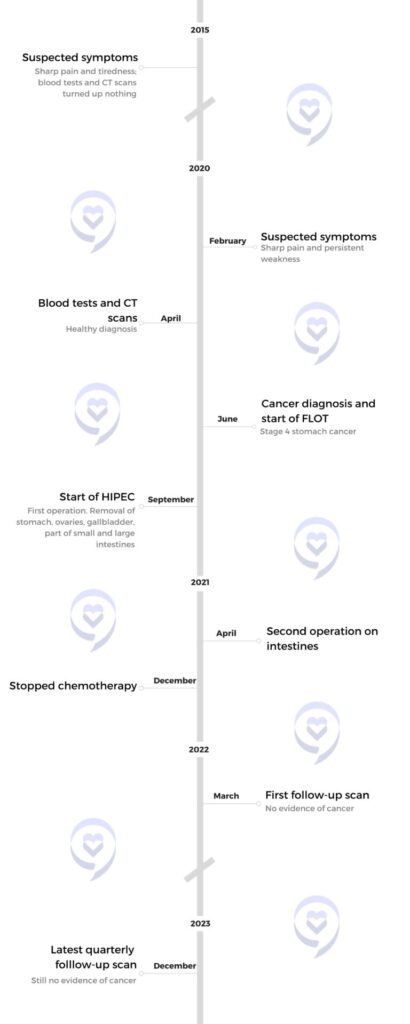
This interview has been edited for clarity. This is not medical advice. Please consult with your healthcare provider for treatment decisions.
Cancer is just an opportunity to prove how strong you are.
Introduction
My name is Viola. I’m Polish, but I’ve been living in Australia for 20 years.
I turn 51 in April this year. I have two kids, 14 and 17.
I like sports, I used to run a lot, I love swimming. I just enjoy being outside, I love nature.
I love talking to people. I just get a lot of energy being around people.
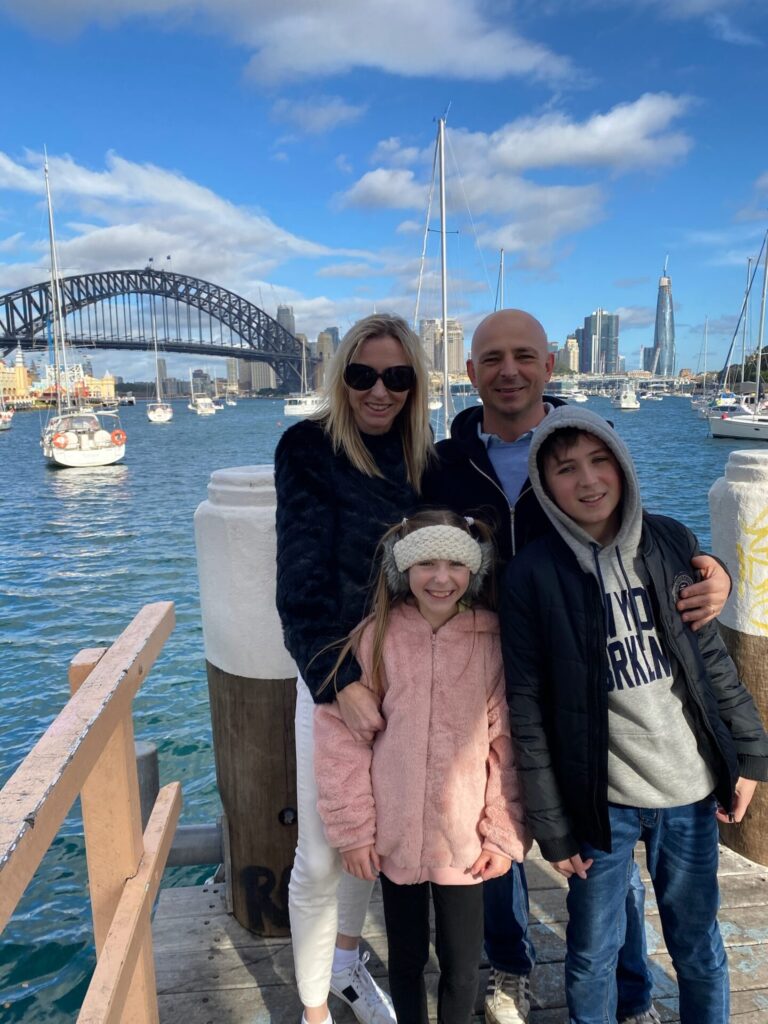
Pre-diagnosis
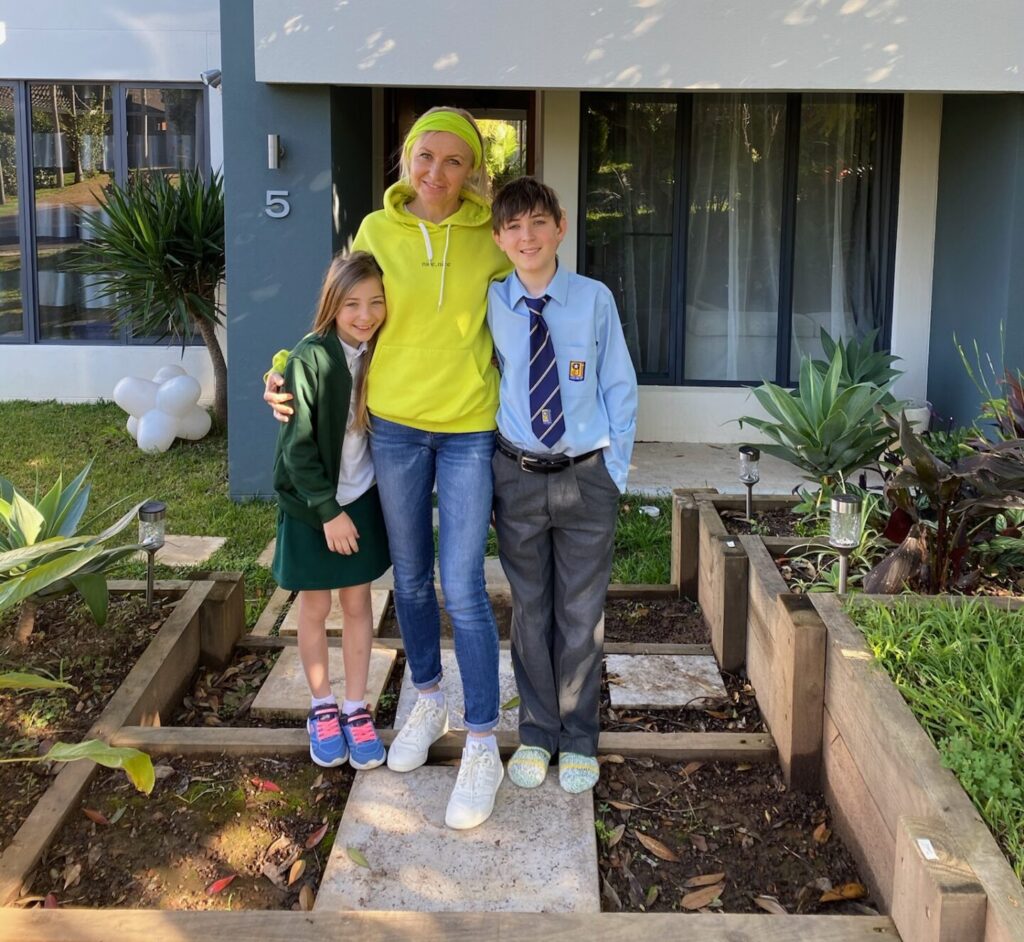
Before I got diagnosed with cancer, I was thinking that I might die from a different disease, but not from cancer, because there’s practically no cancer story in my family.
Only my grandfather had cancer, many, many years ago–he died from lung cancer, but he got it because he smoked a lot.
This means that my cancer was a big surprise for all of us.
My own story goes back a little. Five years before I got diagnosed, I knew something was wrong with me because I was very tired and I could feel a little pain.
But when I went to the doctor and they checked my blood, did a CT scan, and all that, there was nothing. And because I was so active, too, they really didn’t think that something was going on.
All of a sudden, in February 2020–when the pandemic started–my husband, daughter and son all got sick with influenza. And one day, I went to work and suddenly felt a sharp pain. And ever since then, I started to feel weak, and got weaker and weaker. But I thought it was just influenza, too.
My family was fine after 2 or 3 or 2 weeks. But I was still very, very weak. And I kept going to the doctor for checkups, two or three times. But he still couldn’t find anything wrong with me.
Diagnosis
In April, we did the blood tests and CT scan, and the doctor couldn’t see anything. And he said, okay, let’s have you do a gastroscopy or endoscopy.
But he then said, oh, since there’s a pandemic, I don’t know if you can have these tests. But I put my foot down, and said, I have to give it a go, you know?
I got a referral for a different doctor, and I said, OK, if I’m going to have to pay for these visits, let’s get the best doctor we can get.
So I did go to see that new doctor and filled him in. He noticed that I had lost weight–all of a sudden, I had lost 5 kilos. But I personally didn’t notice, because I’ve always been pretty skinny, and I’ve been running quite a lot, too.
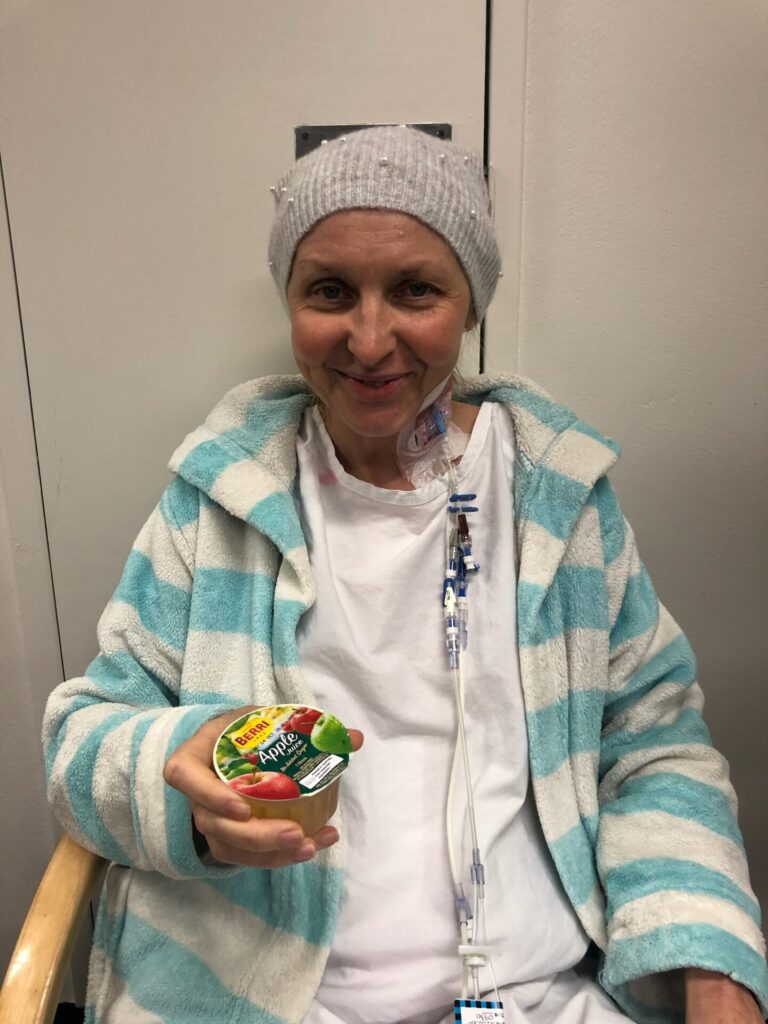
The doctor had me do an endoscopy. I went to see him on a Friday and we did it on Monday. And once again, they couldn’t find anything. But this time, this new doctor said, let’s do another one in a couple days, because I don’t have a good feeling about it. So we did another one after three days.
The doctor didn’t have results yet, but he called me and said–I think it’s cancer. Of course I said, no, it’s not possible, in fact, I already feel much better.
And two days after that is when he called me with the confirmation that it really was cancer. Stomach cancer, stage 4.
And as it turns out, it was hidden in my stomach wall, which is why it didn’t show up easily or right away. And the other thing was the cancer had spread a little bit outside. I think it’s called peritoneal.
Reaction to the Diagnosis
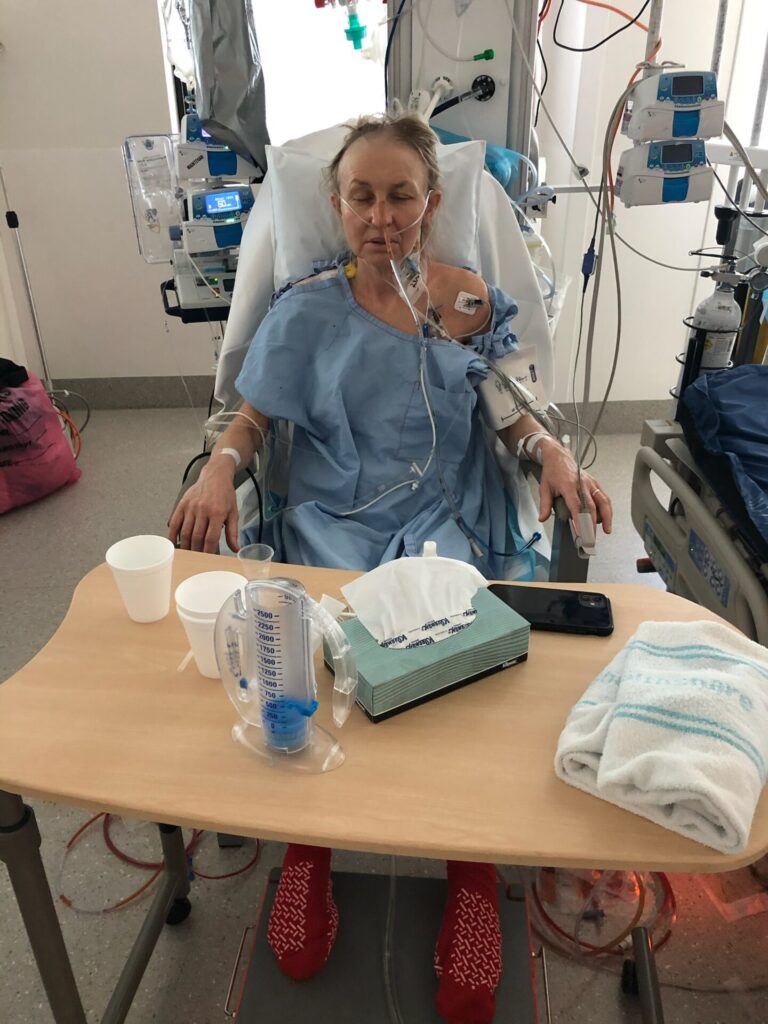
It was from nothing to a big thing. In April 2020, I was a healthy girl; on June 1 of the same year, I was diagnosed with stage 4 stomach cancer.
So this is how sneaky cancer is. Stomach cancer just takes you by surprise. And it’s so ironic because I was always laughing at my husband, saying, hey, I can eat anything, and he would go, oh, I can’t eat this because my stomach hurts.
And moreover, I didn’t have any symptoms like blood in a stool, or anything like that.
So yeah, it was a big, big, big shock to me. I didn’t know what to think. Of course I thought I would die. Just the word cancer freaks you out.
My friends were incredulous. They said, your blood results, they didn’t show anything. The CT scans from April didn’t show anything. The first biopsy didn’t show anything. Is it really cancer?
But it was just hidden in my stomach wall. That’s why I never had constant pain. Because if you have stomach cancer and if you have a lump, wherever you eat, it hurts.
Treatment
Stomach cancer is aggressive cancer, so we had to move right away, and the first treatment I was given was aggressive too.
So the surgeon I was going to said, okay, because you’re young–I was 47 at the time–let’s do the chemo, we’ll put you on FLOT.
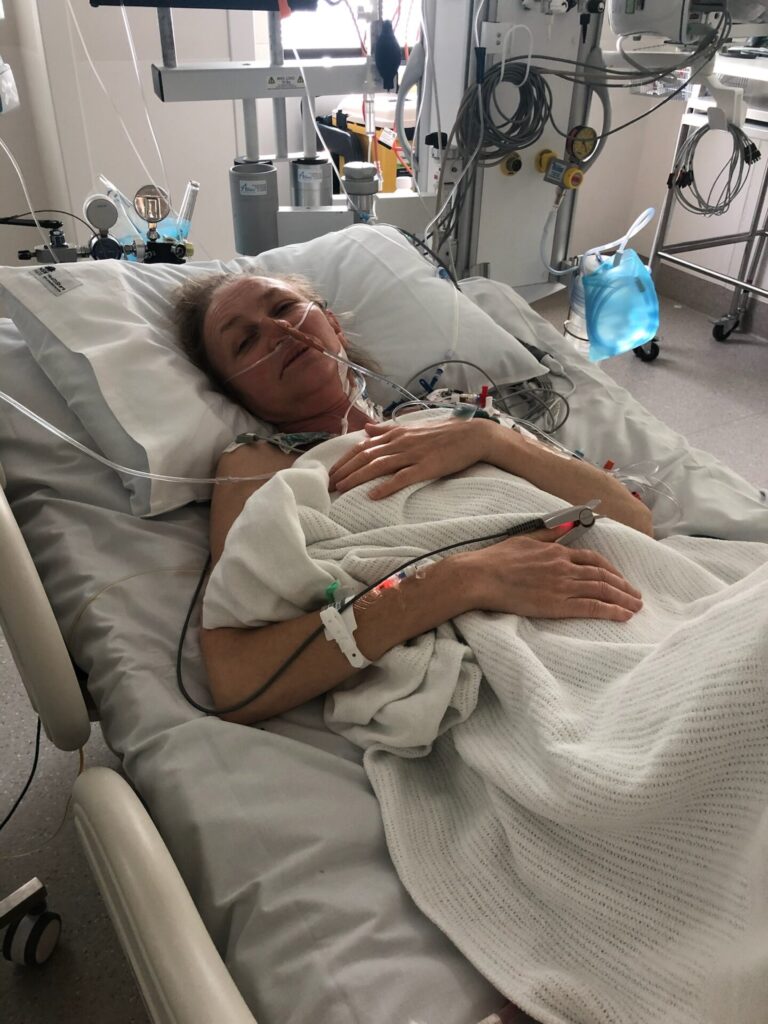
FLOT
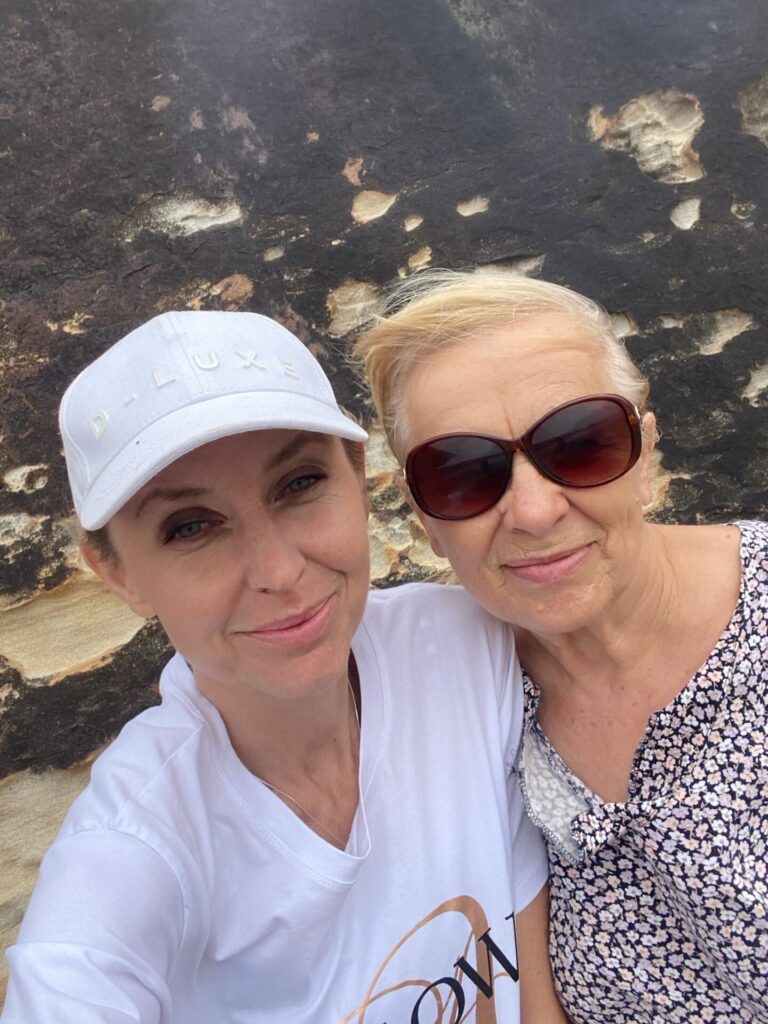
So they put me on FLOT, and like I said, it was very aggressive chemo. It’s not for everyone.
The doctors put people on FLOT if they have hope that their patients can undergo the surgery and regimen. If not, I would have been put on palliative chemo instead.
The doctor wrote a report and in it he said, if the chemotherapy works, we can consider an operation to remove the stomach. When I saw the word “consider”, I freaked out. I could feel that my life was in his hands. And I’m not the kind of person who’s okay when someone else decides about my life.
What about the rest of the cancer that’s outside the stomach, I asked him? He said, well, this is what I can do. But I put my foot down and said, this is not enough. You can’t just leave the rest of the cancer in my body.
So I talked to my mom, who lives back in Poland, and we started searching for alternatives. And she came across a method called HIPEC.
HIPEC
Now, HIPEC is something they don’t recommend for stomach cancer patients. It’s more for people with colon cancer, or ovarian cancer. But we still wanted to give it a shot.
So I started searching here in Australia and found one doctor who could administer it, but I could feel that she didn’t feel confident about HIPEC for me. So I kept on searching.
I found another doctor who actually started HIPEC in Australia, and who was supposedly the best in the country. He had been doing this for such a long time and was very experienced. I think he was about 70 years old at the time already.
I wanted to make an appointment with him, but it wasn’t that straightforward. I had to send all my CT scan results beforehand, and then his staff would have to see if I was qualified for it. So I was waiting for all my scan results to arrive–and praying and praying that he would accept me.
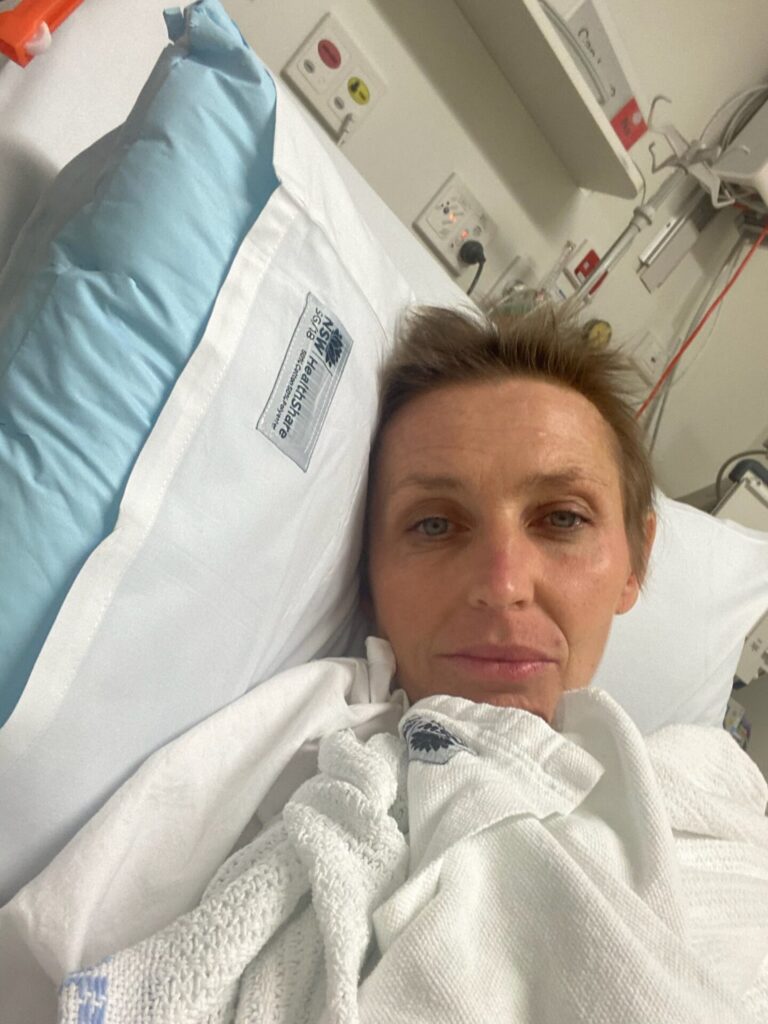
And all of a sudden, I got a phone call from the doctor’s secretary. She said, you’re clear to make an appointment, even if we haven’t received your CT scan results yet. So it was like a blessing from God.
So when I finally met him, he was like, OK, no problem, we can do it. And I said, really? It’s stage 4. He said, yeah, not a problem, we see how we go.
Out of curiosity, I asked, do you get a lot of stomach cancer patients? And he said, I actually don’t. Most of the time, it’s too late and there’s no chance. But with you, I can see a chance that HIPEC will work for you.
So they put me on what would eventually be 4 rounds of HIPEC chemo. It was tough, and not just the chemo itself. It was doubly tough for me, for my family, because I’m responsible for all the cooking and cleaning at home and all of that. And when I got sick my husband had to take over everything.
Also, being on chemo, not having appetite, and thinking about death was traumatizing. And people around me were in shock, too. Because we didn’t have that family history of cancer. And I was also pretty young when it started.
People didn’t know how to help. They were sending flowers and I said, I don’t need flowers, sorry, I need food. Some people just couldn’t get it. I don’t know, maybe I expected too much from people.
So I tried to eat and be strong for the next step, which was an operation. I remember that they really wanted to operate on me quickly. We can’t wait, they said–this is aggressive cancer. We have to do it quickly.
Surgery
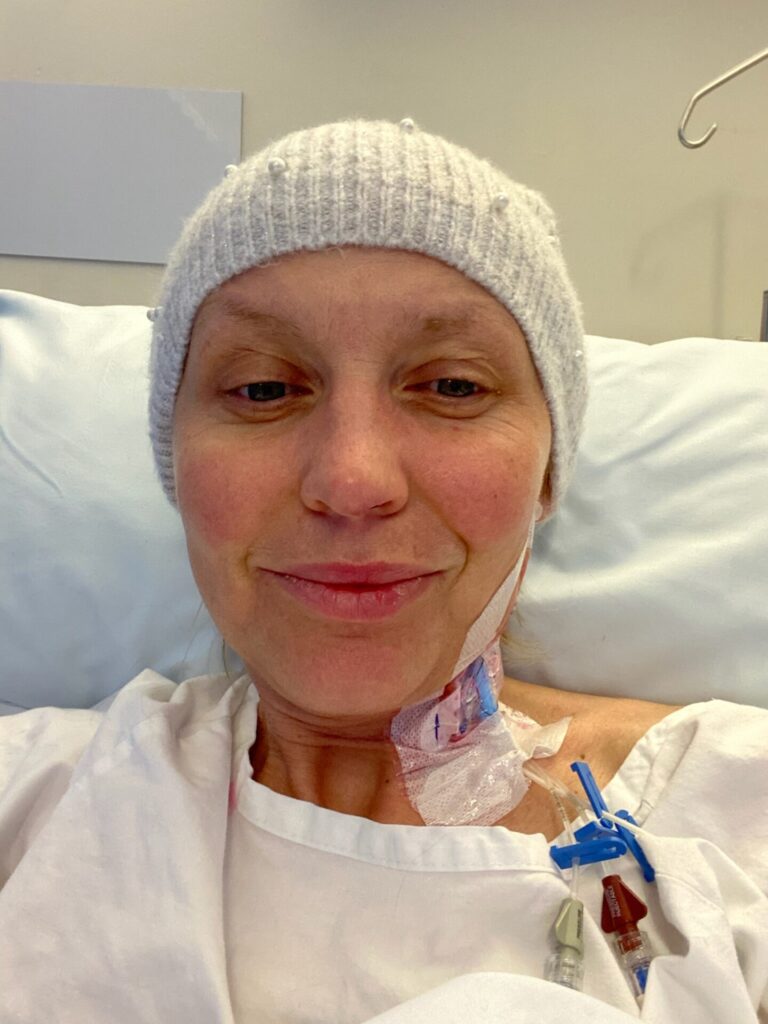
So, in September 2020, they rescheduled all their operations just to fit me in, and then they performed the surgery.
Mine was a long operation, ten hours. They removed my stomach, ovaries, gallbladder, part of the small and large intestines. Honestly, I don’t know if the cancer spread to my gallbladder, but they just removed this just in case.
They told my husband that apparently my stomach was sitting or lying on my intestine. And if the stomach was full of cancer, then it could spread to the intestine. That’s why they removed as much as they could.
Chemotherapy
And after removing all the stuff, they performed the next part of HIPEC.
This is like a hot chemo, 42 degrees. So after they take all the organs out of you, they put in the hot chemotherapy, they close you.
And this is like in the washing machine, it’s just killing the cancer cells that are left after the cancerous parts are removed.
It should have taken just about one hour and a half, but I started bleeding after an hour, and they had to disconnect me. That’s why it took so long, ten hours. And then I went to intensive care.
… the secret of my success is that I was doing the stuff that people don’t want to do.
I’m alive because I was doing stuff that people don’t do.
Post-Procedure
They expected me to be in intensive care for 4 or 5 days.
Because this is very aggressive treatment, and only strong young people can be qualified for it. But, you know, I always had a lot of energy.
When I had the operation and woke up the next morning, I was strangely happy.
My first question was, did you even operate on me? And they said, yes. So I was happy already.
This is like when you go on holiday and then come back home; you still have this energy left over from the holiday.
After I woke up the next day in intensive care, I had all this good energy.
It was in the middle of the night and I was chatting away. The whole world was quiet and I was so active and talking because I was still on this healthy energy.
And when the doctor saw me, he said, oh, I’m pretty happy with the result. You look OK. So maybe we can move you to a normal ward straight away. In fact, they wanted to discharge me under 24 hours because I look pretty OK.
But I said, no way, not yet. I want to stay in intensive care first. I didn’t know if the people in the normal ward would know what to do with me.
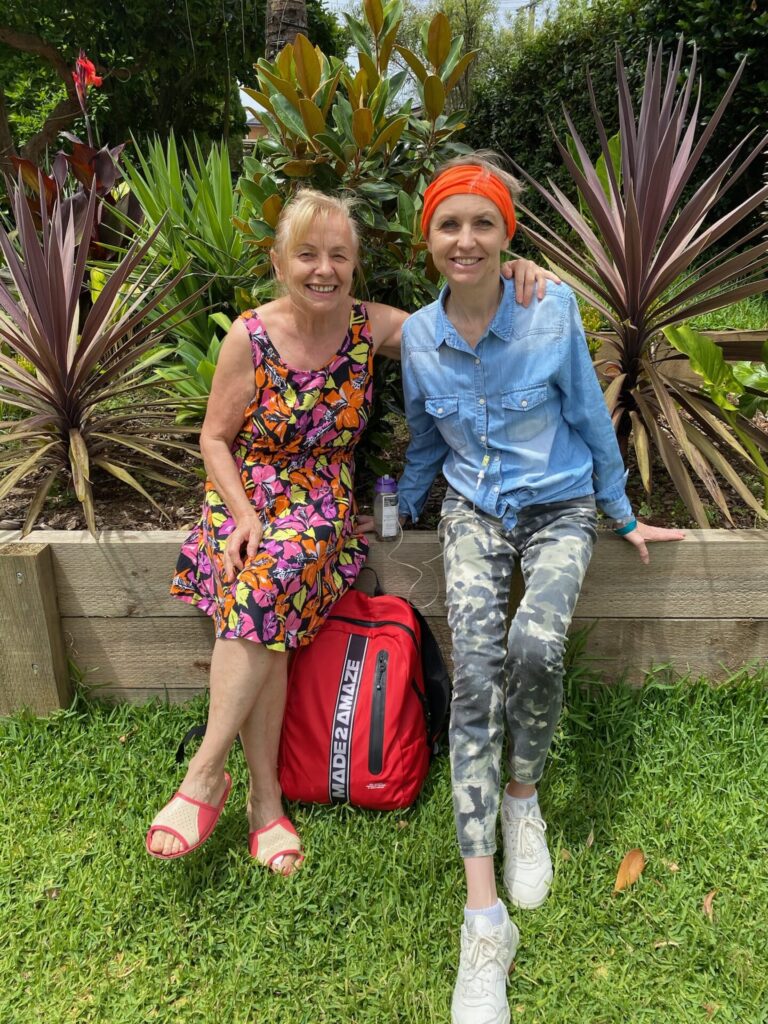
Sure, I did have all that good positive energy afterwards. But recovery turned out to be hard. Because everything stopped inside my body. The intestines were not working. It was a big shock for my body. They did remove half of my organs, after all. I remember after the operation, after the HIPEC, they wanted me to go to the toilet by myself. They didn’t want to do anything that was not right with my body.
After 3 days, I got discharged. I went back home. I was healing. But I wanted to take the next round of chemo straight away. However, they said that I needed at least 2 months to recover, because it was after all quite a big shock for my body. Not just because of the operation but also because of all the chemotherapy that was pumped inside me.
I recovered at home, and I tried to be active while doing so–stuff that people don’t ordinarily think of doing while in recovery. I got myself to walk. I even jumped on the trampoline. Anything to keep my body moving. I slept a lot as well, of course.
But the secret of my success is that I was doing the stuff that people don’t want to do. I’m alive because I was doing stuff that people don’t do.
Second Operation
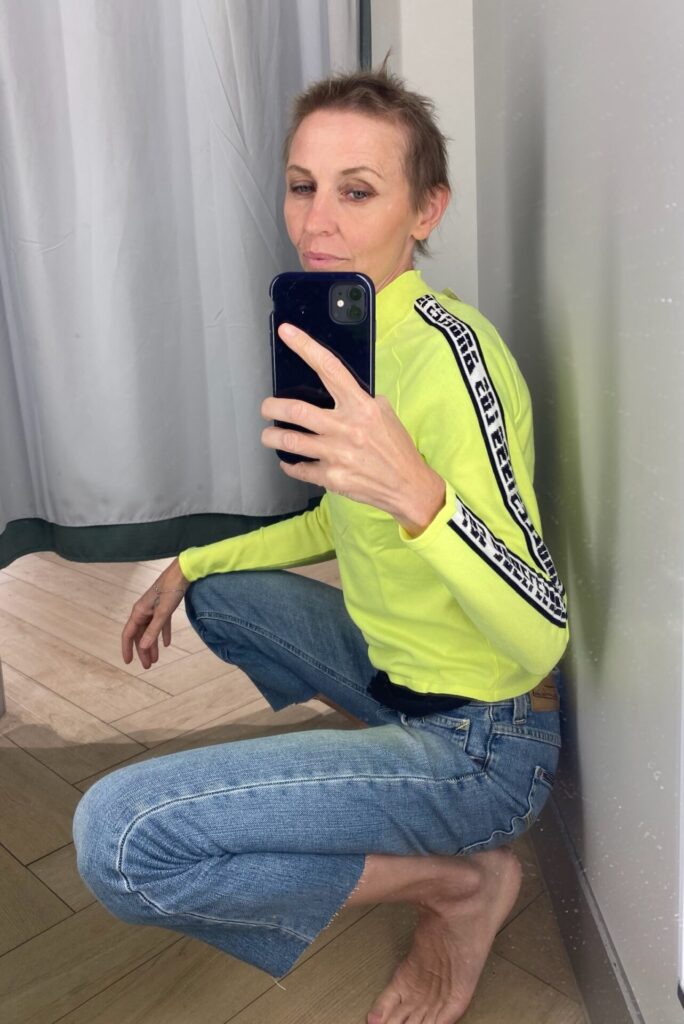
After this operation, I had to undergo a second operation in April 2021, because I had a problem with my intestines.
I was already skinny, on chemotherapy, and I lost a lot of weight. Maybe I’m mentally strong, and my body was strong too.
But I couldn’t keep the food in my body; the toilet became my home. Honestly, I could sleep there. It was just a nightmare.
So my weight was only 38 kilos in April 2021. So, to fix me up, I had to have a second operation. They had to open me up again and see what’s going on.
Of course, it was a scary moment, honestly, because this was the time when I started vomiting a lot at the hospital.
And even my son said, I thought you are not coming back, because when you start vomiting, it means that your intestines are blocked, and if the intestines are blocked, you’re done for.
So I underwent a 6-hour operation to repair my intestines.
Afterwards, the doctor checked–and there was no sign of cancer.
Even at the hospital, I kept on doing the things that were working for me. I was pushing myself. I tried to walk and do different things. I meditated and prayed. I just refused to accept that I can die.
Stopping Chemotherapy and Being Cancer-Free
After the surgery, I stayed on chemo for over a year because my oncologist didn’t think that I was going to survive.
My oncologist, by the way, didn’t want me to do the operation. He said, people with stage 4 shouldn’t be operated on. But I retorted, I don’t need to talk to you–this is my life. Why should I put it in someone else’s hands?
I should also say that my surgeon and oncologist don’t get along. They don’t speak, because my oncologist doesn’t like my surgeon. But I’m really grateful for my surgeon, because he’s a great man with a big heart. He’s helped so many people the same way he helped me. So I continue to pray for his continued health.
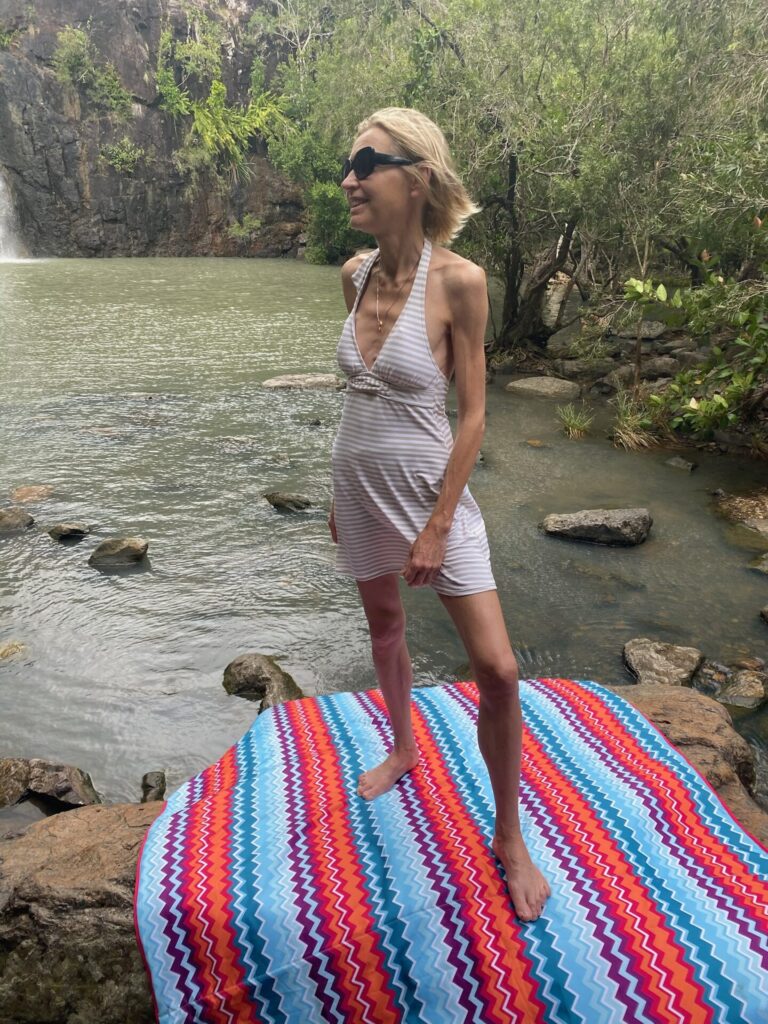
In December 2021, I ended up stopping chemotherapy. This was a risky choice I had to make. I was losing weight again and my body wasn’t absorbing nutrients at all.
I was scared because chemo was saving me, it was keeping cancer away from me. But then I went to another oncologist, who backed me up.
The oncologist said, you’re right, Viola, stop the chemo. Get stronger. If something comes back–hopefully nothing will, but just in case it does–your body will be much stronger and will be better equipped to fight it off.
So I took his advice and stopped chemo. And since then, every 3 months I’ve had a CT scan and a check up.
So far, so good. No signs of cancer.
… don’t be scared, really, because people want to scare you.
Saying you have cancer and then you are just–bang, you’re done.
You’re not done.
Words of Advice
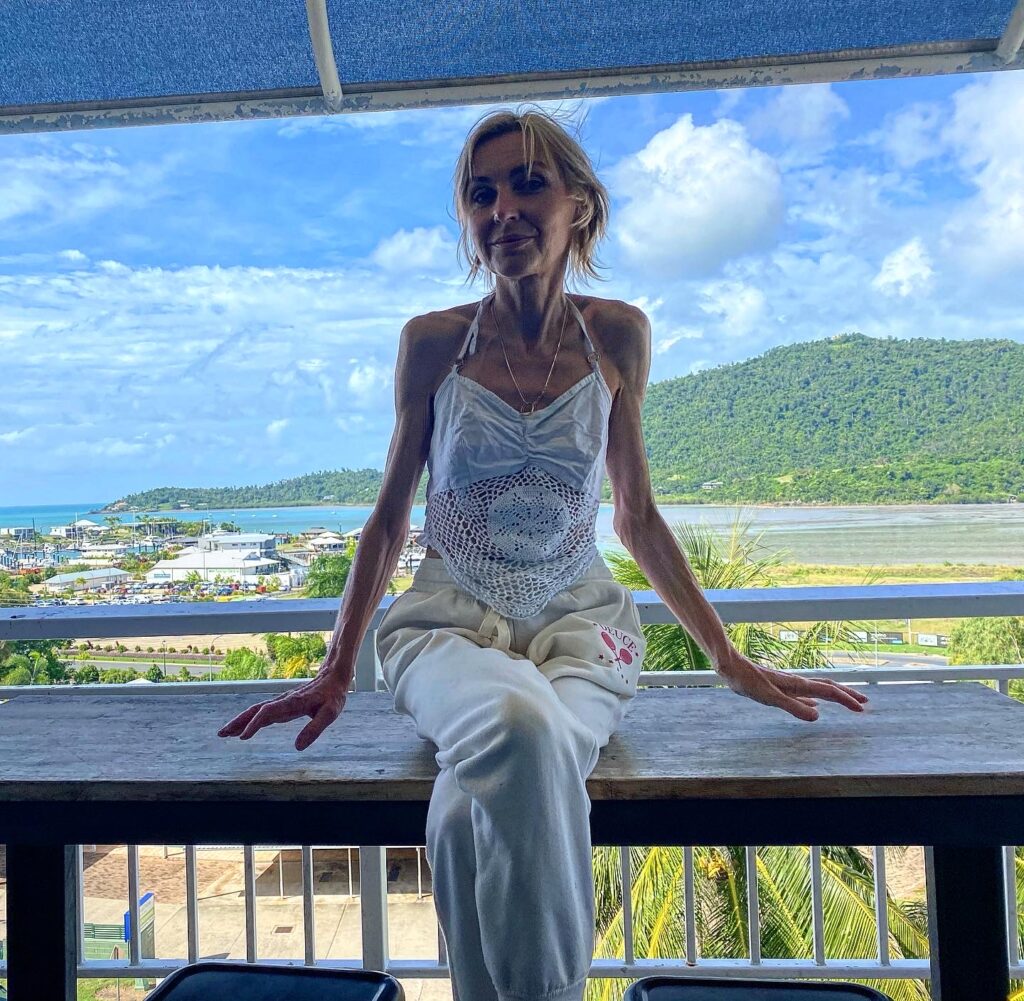
Because you live, people look at me and they said, oh, you’re fine, blah, blah, blah. Even my family, they don’t get it.
People said, well, you should go and live your life. But you can’t live your life if you could die.
My death was in front of my face. It’s changed me. It’s changed me a lot.
But honestly, I don’t care what other people think. You know, people, this is my life. This is my decision.
And I think I’m a big winner.
I don’t listen to anyone, honestly. Even to my family. The only person who supports me is my mom. But I’m strong. I’m very mentally strong. And I wish more people who are going through cancer will listen to themselves instead of other people. People who have never gone through this.
I only listen to people who have experienced what I went through. People who have never gone through this honestly don’t have a clue what they’re talking about.
I know, maybe I’m too straightforward, but this is me.
If someone can learn something from me, that will be great. Look, whatever happens next, I’m much stronger. And I have more knowledge.
When I got diagnosed for the first time, it was a big surprise. But now I know that cancer is just another sickness. This is about what you eat. It’s about your mindset. It’s everything. But don’t be scared, really, because people want to scare you. Saying you have cancer and then you are just–bang, you’re done. You’re not done.
Cancer is just an opportunity to prove how strong you are.

Inspired by Viola's story?
Share your story, too!
More Stomach Cancer Stories
Lauren C., Stomach Cancer Stage 1, CDH1 Mutation
Cancer details: CDH1 mutation led to “hereditary diffuse gastric cancer” (HDGC)
HDCG cancer risks: “Frequently, HDGC-related cancers develop in individuals before the age of 50” (NIH)
Treatments: Total gastrectomy (surgery to remove whole stomach)
...
Viola K., Stomach Cancer, Stage 4
Symptoms: Persistent fatigue, Weight loss, Occasional pain, Persistent weakness
Treatment: Chemotherapy (FLOT), HIPEC (Surgery + Hot Chemotherapy), 2nd intestinal surgery
...